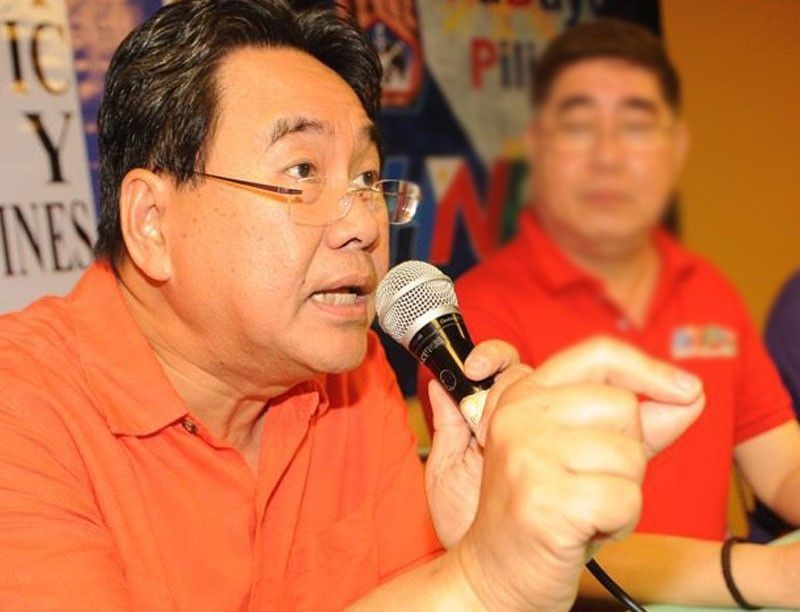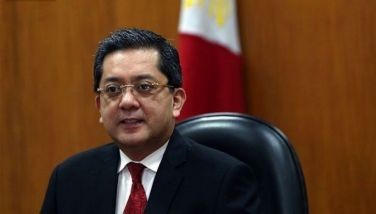House backs expansion of foreign ownership in Philippines

MANILA, Philippines — The House of Representatives committee on constitutional amendments yesterday voted to endorse the rewriting of the Constitution’s economic provisions to allow expanded foreign ownership of land and businesses, including public utilities, educational institutions and mass media.
The committee chaired by Cagayan de Oro City Rep. Rufus Rodriguez consolidated six related measures into a still unnumbered Resolution of Both Houses authored principally by Speaker Alan Peter Cayetano and Majority Leader Ferdinand Martin Romualdez.
The resolution’s other authors are Rodriguez, Deputy Speaker Aurelio Gonzales Jr. of Pampanga and Reps. Lord Allan Velasco of Marinduque, Antonio Albano of Isabela, Teodorico Haresco Jr. of Aklan and Henry Oaminal of Misamis Occidental.
Rodriguez described the proposed rewriting of certain provisions of the Constitution on the economy as “economic Cha-cha.”
“It aims to lift the limitations on foreign investments in public utilities and the development in natural resources in order to have more employment for Filipinos. The Philippines is lagging behind its ASEAN (Association of Southeast Asian Nations) neighbors in the amount of foreign direct investments,” he said.
Rodriguez said lifting foreign ownership or equity restrictions “will address the high rate of unemployment in the country.”
The Inter-Agency Task Force on Constitutional Reform (Task Force CORE) has joined hands with the Department of Finance in pushing for the removal of economic restrictions in the Constitution, including the ban on foreign investments in some industries.
“Over the last 10 years, infrastructure development is also the poorest record in the Philippines, compared to the six major ASEAN nations as of 2015,” finance expert and Task Force CORE member Gary Olivar said in a statement.
“With regards to economic growth, we have been left behind by our neighbors, we are now number 63 in a survey taken in 185 countries a few years ago. And because of all of these – this policy of restrictions in foreign investments – poverty is still rampant. We are the only country in ASEAN that has failed to cut this poverty by half in the last 25 years,” he added.
However, Olivar said they are still for the retention of 100 percent land ownership to Filipinos only.
Under the Cha-cha resolution, the phrase, “unless otherwise subsequently provided by law,” would be inserted in seven parts of the Charter dealing with national economy and patrimony, and ownership of land, mass media, schools and telecommunications and other public utilities.
This means that the present restrictions would be retained but Congress would be authorized to pass a law in the future to relax or scrap such limitations, Rodriguez said.
The committee also endorsed three political reforms – the election of the president and vice president as one team similar to the practice in the United States, the increase in the term of office of members of the House of Representatives and local officials from three years to five years and the election of senators by region instead of nationally.
Rodriguez said under the proposal, a vote for the president would be counted as a vote for his vice presidential runningmate “to ensure a united leadership in the executive branch.”
He said the president would still be limited to a single term without reelection, while the vice president would have no term limit.
Gonzales, who is among the proponents of a longer term for local officials, said a three-year term is too short for these officials to go into long-term planning and implementation of programs and projects for the development of their local government units.
The present limit of three consecutive terms for House members and local officials would be retained.
In the case of the Senate, the proposed amendment is for its members to be elected from nine regions at three per region, for a total of 27 senators, versus the present 24.
The proposed regional groupings are Metro Manila, Northern Luzon, Southern Luzon, Bicol, Eastern Visayas, Western Visayas, Northern Mindanao, Southern Mindanao and Bangsamoro Autonomous Region.
Senators would have a term of office of five years with two reelections.
Rodriguez said the House and the Senate, voting separately, would have to approve the proposed constitutional amendments by a vote of three-fourths of all their members.
He said it is time for the present Congress to decide on Cha-cha, since proposed changes had already been tackled by previous Congresses.
President Duterte has urged his congressional allies to vote on Cha-cha during the remaining half of his six-year term. – With Manny Tupas
- Latest
- Trending



























